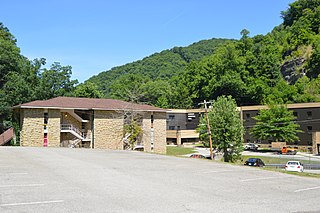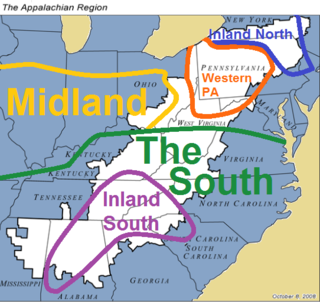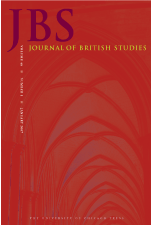
The Appalachian Trail, is a hiking trail in the Eastern United States, extending almost 2,200 miles (3,540 km) between Springer Mountain in Georgia and Mount Katahdin in Maine, and passing through 14 states. The Appalachian Trail Conservancy claims the Appalachian Trail to be the longest hiking-only trail in the world. More than three million people hike segments of the trail each year.

James Bryce, 1st Viscount Bryce,, was a British academic, jurist, historian, and Liberal politician. According to Keoth Robbins, he was a widely-traveled authority on law, government, and history whose expertise led to high political offices culminating with his successful role as ambassador to the United States, 1907–13. His intellectual influence was greatest in The American Commonwealth (1888), an in-depth study of American politics that shaped the understanding of America in Britain and in the United States as well.

Appalachian State University is a public university in Boone, North Carolina. It was founded as a teachers college in 1899 by brothers B. B. and D. D. Dougherty and the latter's wife, Lillie Shull Dougherty. The university expanded to include other programs in 1967 and joined the University of North Carolina System in 1971.

Alice Lloyd College is a private work college in Pippa Passes, Kentucky. It was co-founded by the journalist Alice Spencer Geddes Lloyd and June Buchanan in 1923, at first under the name of Caney Junior College. Founded as an institution to educate leaders in Appalachia locally, it became a bachelor's degree-granting institution in the early 1980s. Alice Lloyd College is accredited by the Southern Association of Colleges and Schools (SACS).

Appalachian English is American English native to the Appalachian mountain region of the Eastern United States. Historically, the term Appalachian dialect refers to a local English variety of southern Appalachia, also known as Smoky Mountain English or Southern Mountain English in American linguistics. This variety is both influential upon and influenced by the Southern U.S. regional dialect, which has become predominant in central and southern Appalachia today, while a Western Pennsylvania regional dialect has become predominant in northern Appalachia, according to the 2006 Atlas of North American English (ANAE). The ANAE identifies the "Inland South,” a dialect sub-region in which the Southern U.S. dialect's defining vowel shift is the most developed, as centering squarely in southern Appalachia: namely, the cities of Knoxville and Chattanooga, Tennessee; Birmingham and Huntsville, Alabama; and Asheville, North Carolina. All Appalachian English is rhotic and characterized by distinct phonology, morphology, syntax, and lexicon. It is mostly oral but its features are also sometimes represented in literary works.

Appalachian music is the music of the region of Appalachia in the Eastern United States. Traditional Appalachian music is derived from various influences, including the ballads, hymns and fiddle music of the British Isles, the African music and blues of early African Americans, and to a lesser extent the music of Continental Europe.

The culture of the Southern United States, Southern culture, or Southern heritage, is a subculture of the United States. From its many cultural influences, the South developed its own unique customs, dialects, arts, literature, cuisine, dance, and music. The combination of its unique history and the fact that many Southerners maintain—and even nurture—an identity separate from the rest of the country has led to it being the most studied and written-about region of the U.S.

The publication of the North American Conference on British Studies, The Journal of British Studies is an academic journal aimed at scholars of British culture from the Middle Ages through the present. The journal was co-founded in 1961 by George Cooper. JBS presents scholarly articles and book reviews from international authors who share their ideas on British society, politics, law, economics, and the arts. Until 2005, it covered subjects from the medieval period to the present, while Albion covered all periods of British history. Albion was merged into the JBS as of vol. 44 in 2005. Until October 2012 the journal was published by University of Chicago Press. From volume 52, it has been published by Cambridge University Press.
James Brown "Jim" Allen is an American historian of Mormonism and was an official Assistant Church Historian of the Church of Jesus Christ of Latter-day Saints from 1972 to 1979. While working as Assistant Church Historian, he co-authored The Story of the Latter-day Saints with Glen Leonard. After Ezra Taft Benson dismissed the book as secular new history, other events led to the dissolution of the LDS Church History department in 1982. Allen resigned as Assistant Church Historian in 1979, returning to work at Brigham Young University (BYU) full-time.
James E. McWilliams is professor of history at Texas State University. He specializes in American history, of the colonial and early national period, and in the environmental history of the United States. He also writes for The Texas Observer and the History News Service, and has published a number of op-eds on food in The New York Times, The Christian Science Monitor, and USA Today. Some of his most popular articles advocate veganism.

Timothy James Brook is a Canadian historian, sinologist, and writer specializing in the study of China (sinology). He holds the Republic of China Chair, Department of History, University of British Columbia.
William Cornelius Lubenow holds the chair of History at Stockton University. He serves as President of the North American Conference on British Studies, and Chairman of the American Associates Committee of Parliament History. Lubenow is also a member of the Reform Club. His many academic distinctions include: Visiting Fellow of Wolfson College, Cambridge and Fellow of the Royal Historical Society.

The Appalachian region and its people have historically been stereotyped by observers, with the basic perceptions of Appalachians painting them as backwards, rural, and anti-progressive. These widespread, limiting views of Appalachia and its people began to develop in the post-Civil War; Those who "discovered" Appalachia found it to be a very strange environment, and depicted its "otherness" in their writing. These depictions have persisted and are still present in common understandings of Appalachia today, with a particular increase of stereotypical imagery during the late 1950s and early 1960s in sitcoms. Common Appalachian stereotypes include those concerning economics, appearance, and the caricature of the "hillbilly."
Ritu Birla is an historian of modern South Asia. She is an associate Professor of History and is formerly the Richard Charles Lee Director of the Asian Institute and former Director of the Centre for South Asian Studies at the Munk School of Global Affairs & Public Policy at the University of Toronto.
Alfred A. Cave, Ph.D., D. Litt. was an American professor, historian, and author. He is a Professor Emeritus of History at the University of Toledo, specializing in the ethnohistory of Colonial America, Native Americans, and the Jacksonian era.
Edward Chaney is a British cultural historian. He is Professor Emeritus at Solent University and Honorary Professor at University College London . He is an authority on the evolution of the Grand Tour, Anglo-Italian cultural relations, the history of collecting, Inigo Jones and the legacy of ancient Egypt. He also publishes on aspects of 20th-century British art. In 2003, he was made a Commendatore of the Italian Republic. He is the biographer of Gerald Basil Edwards, author of The Book of Ebenezer Le Page which he succeeded in publishing following the author's death in 1976. This has since been recognised as a twentieth-century classic.
Sir Thomas Martin Devine is a Scottish academic and author, who specializes in the history of Scotland. He is known for his overviews of modern Scottish history. He is an advocate of the total history approach to the history of Scotland. Before his retirement, he was a professor at the University of Strathclyde, the University of Aberdeen and the University of Edinburgh.
History of the Reign of King Henry VII is a 1622 work by the English writer Francis Bacon. It charts the reign of the first Tudor monarch Henry VII who took the throne from his rival Richard III in 1485. At the time of writing Bacon had recently fallen from political power, and completed the work in late 1621 and sent a copy to James I. It was published the following year.

Laura Wright is a professor of English at Western Carolina University. Wright proposed vegan studies as a new academic field, and her 2015 book The Vegan Studies Project: Food, Animals, and Gender in the Age of Terror served as the foundational text of the discipline. As of 2021 she had edited two collections of articles about vegan studies.

Sasha Deborah Turner is a Jamaican-American historian who is an Associate Professor of History of at the Johns Hopkins University Department of the History of Medicine. Her research considers the history of the Caribbean, with a particular focus on enslavement and colonialism. She is Co-President of the Coordinating Council for Women in History.











